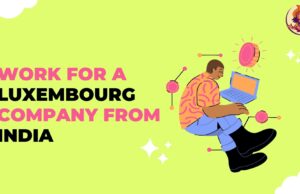Artificial Intelligence (AI) is no longer a futuristic concept—it’s here, and it’s changing the way we live and work. One of the most exciting branches of AI is Generative AI, which focuses on creating new content, such as text, images, music, and even code. Together, Artificial Intelligence (AI) and Generative AI are reshaping the software industry, creating new challenges, opportunities, and career paths.
How AI and Generative AI Are Impacting the Software Industry
- Automating Repetitive Tasks
AI is automating repetitive tasks in software development, such as debugging, testing, and code generation. Tools like GitHub Copilot, powered by Generative AI, help developers write code faster by suggesting lines or even entire functions. This speeds up development and reduces human error. - Enhancing Creativity and Innovation
Generative AI is enabling developers to create new solutions quickly. For example, it can generate design prototypes, write documentation, or even create entire applications from simple prompts. This allows software teams to focus on solving complex problems rather than spending time on routine tasks. - Improving User Experiences
AI-powered features, such as personalized recommendations, chatbots, and voice assistants, are becoming standard in software products. Generative AI helps create more natural and engaging interactions, making software more user-friendly. - Reducing Costs and Time
By automating tasks and improving efficiency, AI is helping companies reduce development costs and bring products to market faster. This is especially important in competitive industries where speed and innovation are key. - Challenges to Address
While AI offers many benefits, it also brings challenges. Issues like data privacy, ethical concerns, and the need for human oversight remain critical. Companies must ensure AI systems are transparent, fair, and secure, especially when implementing Artificial Intelligence (AI) and Generative AI.
Job Opportunities Created by AI and Generative AI
As AI transforms the software industry, it’s also creating new job roles and opportunities. Here are some of the most in-demand positions:
- AI/ML Engineers
These professionals design and build AI systems. They work on machine learning models, natural language processing, and other AI technologies. With Generative AI on the rise, demand for these roles is growing fast. - Data Scientists
Data scientists analyze large datasets to train AI models. They play a key role in improving the accuracy and performance of AI systems, including Generative AI tools. - Prompt Engineers
A new role emerging with Generative AI, prompt engineers specialize in crafting effective inputs (prompts) to get the best outputs from AI systems. This is especially important for tools like ChatGPT or DALL-E. - AI Ethics Specialists
As AI becomes more powerful, companies need experts to address ethical concerns. These specialists ensure AI systems are fair, unbiased, and used responsibly. - AI Product Managers
These professionals bridge the gap between technical teams and business goals. They oversee the development of AI-powered products and ensure they meet user needs. - AI Trainers
AI systems need to be trained on high-quality data. AI trainers work on labeling data, refining models, and improving the performance of AI tools. - Software Developers with AI Skills
Traditional software developers are now expected to have AI knowledge. Understanding how to integrate AI into applications is becoming a must-have skill. - Cybersecurity Experts
With AI systems handling sensitive data, cybersecurity is more important than ever. Experts in this field protect AI systems from threats and ensure data privacy.
The Future of the Software Industry with AI
The integration of AI and Generative AI into the software industry is just beginning. As these technologies evolve, they will continue to automate tasks, enhance creativity, and improve efficiency. However, human skills will remain essential. Jobs will shift toward roles that require critical thinking, creativity, and ethical decision-making.
For professionals in the software industry, adapting to this change is crucial. Learning AI-related skills, staying updated on trends, and embracing new tools will be key to thriving in this evolving landscape.
In conclusion, Artificial Intelligence (AI) and Generative AI are not just changing the software industry—they’re redefining it. By automating tasks, enabling innovation, and creating new job opportunities, these technologies are shaping the future of work. The key to success lies in embracing change, upskilling, and leveraging AI to build a better, smarter world.
















Comments are closed.